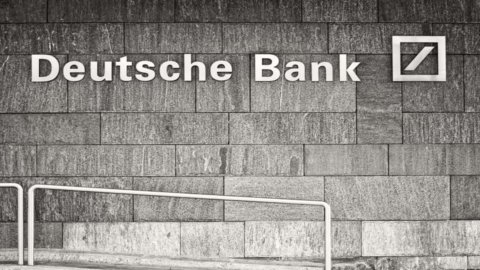It is useless to have illusions, but it would be self-defeating to despair: at Easter 2012 we are only halfway through the crisis. The first real global crisis, which began in August 2007 in America with the emergency of surprime mortgages, is destined to last until 2019: 12 years in all. Only after that will it return to pre-crisis production and growth levels, i.e. at the beginning of 2007. This is not supported by astrologers but by Prometeia, the most accredited center for research and econometric forecasts in Italy in the report just drawn up by the team of economists led by Paolo Onofri. Fortunately, the recovery will come sooner: for Italy, the exit from the recession is expected in the last part of the year with the prospect of marking modest growth next year (+0,4%) which should however consolidate (+ 1,4%) in 2014.
We will not emerge from the recession as we entered and in general the West will grow less while the emerging countries will pull the sprint, albeit with less momentum. Fingers crossed, according to the economists at Prometeia, we don't see black swans and catastrophic events coming, but some gray swans do and the fog will still be thick over the future of our economies. There is the electoral uncertainty (in Europe as in the USA), there are public debts that are generally higher than a few years ago and are always ready to fuel – especially in the Eurozone – sovereign risk and to have a heavy impact on bank balance sheets and the stock market trend, but there is also the growth of household debts (above all in America and England) and there are fiscal restrictions which weigh negatively on consumption and investments without knowing whether or not the Fiscal Compact will be a step towards fiscal union. On the other side of the balance is the reasonable belief that China's landing and exit from its housing bubble will be soft and also the forecast that the eurozone's budget problems will be less severe, even if Greece, Portugal and Spain will have to constantly be kept under control.
What is really worrying is growth: weak in America and even more so in Europe, where Germany will not be the driving force, and where austerity programs are making all their weight felt. It is no coincidence that in recent days the new speculative wave conducted by the most aggressive Anglo-Saxon hedge funds towards the Eurozone is aiming to lay bare not so much the budgetary problems of the most exposed European countries but the severity of the recession and their difficulty to get out of the perverse circle fueled by austerity and lack of growth. From this point of view it is not surprising that Italy risks returning to the eye of the market storm, that the Btp-Bund spread has risen worryingly and that our country has been the one that has grown least in Europe in the decade. Luckily there is a prime minister like Mario Monti who is perfectly aware that today the problem of growth is Italy's absolute priority, but that to respect it there are no shortcuts but reforms, reforms, reforms: to be done without interruption.
The latest Promteia report confirms that only exports will help us get out of the recession but it won't be enough. Without robust growth in productivity – which means working more but also working better – and without a shock to investment and consumption, we will not be able to make a breakthrough. But the future is in our hands. Accelerating growth is difficult, but not impossible. It is not a question of dreaming of miracles but, after the reform of the labor market, two objectives must now be placed on top of everything: the reduction of taxes on labor and companies to encourage consumption and investment and the unblocking of payments (70 billion euros ) of the PA to businesses. Monti is perfectly aware of this: after the sacrifices, the Italians now want to glimpse the fruits of development. The real emergency today is the growth that doesn't exist: reactivating it is the priority of priorities.





